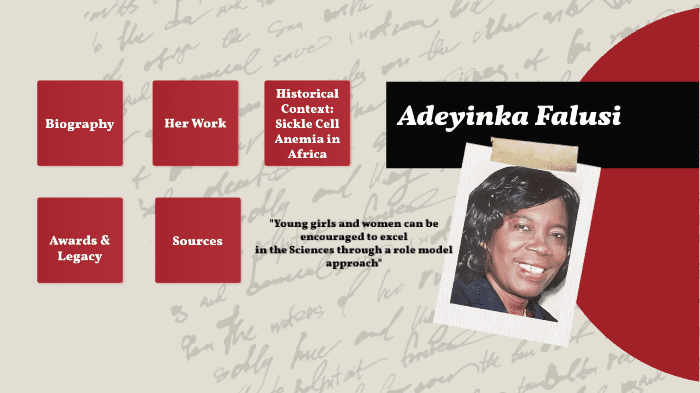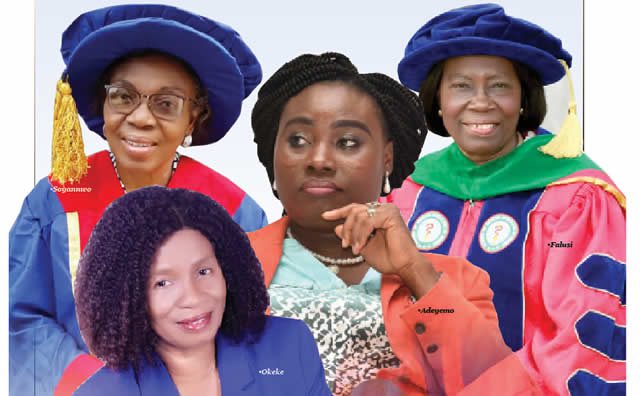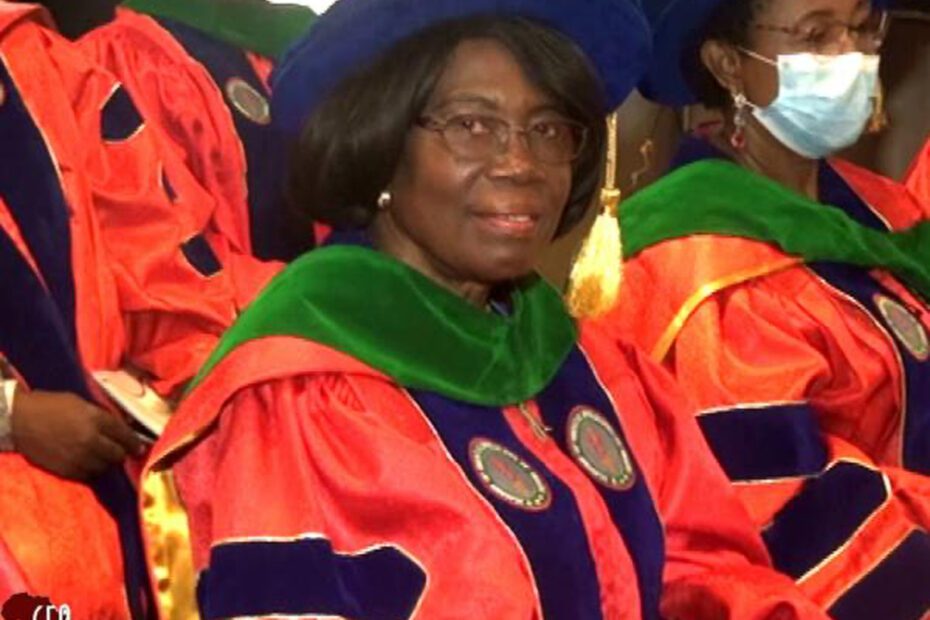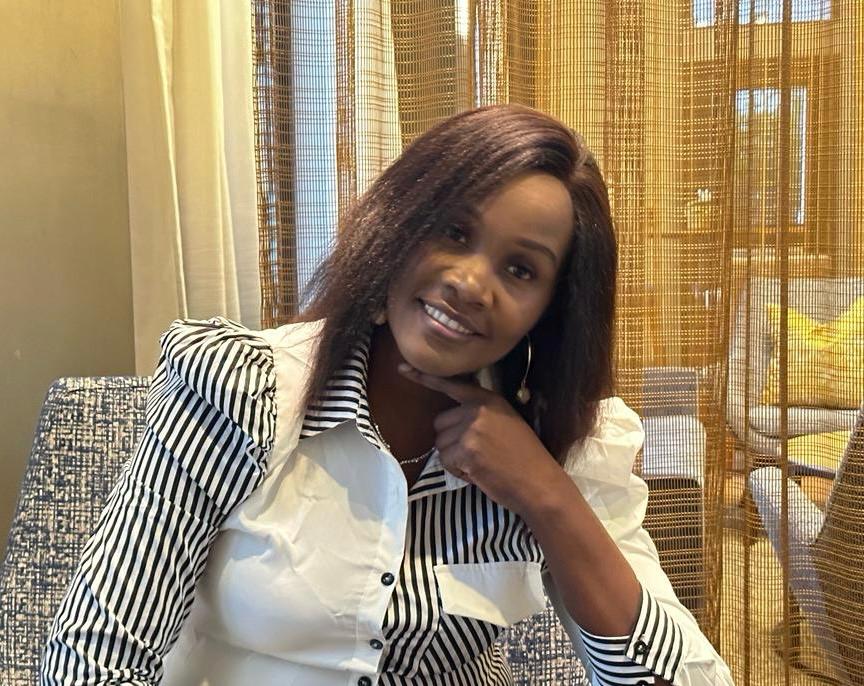The accomplishments of women in science open doors to explore the vast landscape of Africa and its diverse scientific realms. These stories showcase remarkable energy and commendable dedication. Amidst social, economic, and cultural obstacles in embracing science, managing work-life balance, and battling perceptions and stereotypes, these women showcase resilience. Their journeys exemplify that with self-determination, women can not only overcome these barriers but also thrive and excel in the realm of science. The article unveils the Scientific Breakthroughs of Adeyinka Falusi.
Unveiling the Scientific Breakthroughs of Adeyinka Falusi
Adeyinka Falusi, a professor of haematology and past Director of the Institute for Advanced Medical Research and Training at the University of Ibadan. She specializes in human genetics, bioethics, and molecular genetics concerning inherited blood disorders like sickle-cell disease and alpha-thalassemia. She often shares her passion for science.
How her Childhood Inspired her journey in Scientific Breakthroughs
Adeyinka Falusi heads the Sickle Cell Hope Alive Foundation (SChAF) and teaches haematology at the University of Ibadan, Nigeria. She’s published a lot of articles and spoken at numerous conferences. Her interest in science sparked when she was young, inspired by a neighbor named Grace, which led her to study science. She attended a top secondary school, Queen’s School, where her fascination with science grew. Her passion for experimental science developed during her time at the University of Ibadan.
Throughout her career, she made significant contributions to understanding anaemia, sickle cell disease, breast cancer, and malaria. Her research on sickle cell disease between 1982 and 1987 even changed the global understanding of its prevalence in Nigeria.
Her groundbreaking work earned her prestigious awards, like the L’Oreal-UNESCO award for women in Science (Africa 2001) and recognition from the Nigerian Academy of Science. This award honors one exceptional scientist per continent annually. Adeyinka received recognition like the Fellow Nigerian Academy of Science (FAS, 2009) and the National Productivity Order of Merit (NPOM, 2009).
The Scientific Role She Played in Nigeria

She realized Nigeria needed a platform to raise awareness and support for sickle cell disease patients, thus founded the Sickle Cell Hope Alive Foundation (SChAF) in 2012 and officially launched it in 2014. Leading this nonprofit organisation, she accomplished significant milestones. Among them include the creation of a free handbook for sickle cell patients’ parents. Additionally, she contributed to researching diseases like breast cancer and established a specialized laboratory for breast cancer diagnostics.
The Career of Adeyinka Falusi
Adeyinka’s life as a scientist and as a mother was challenging. In Nigeria, the belief that pursuing a science career clashes with raising children. Despite the demanding nature of scientific work, she credits her family’s support for enabling her career.
Collaborating globally, she overcame challenges like power shortages and equipment deficiencies by securing competitive grants. Committed to supporting women in science, she mentors several accomplished female scientists and has instituted awards to encourage young female scientists.
Throughout her career, Adeyinka has been thankful for the guidance of mentors like Prof. Lucio Luzzatto and Prof. Grace Olaniyan-Taylor, who inspired and supported her research endeavours. She firmly believes that apart from studying, women and young girls can excel in science through mentorship and role models.
Why Haematology
Adeyinka Falusi’s father, despite lacking a formal education, took her to school, regardless of her gender. He praised her abilities, instilling a sense of confidence within her. Her mother was determined to give her a better life than hers, supporting her education and dreams.
At Queens School, Ede, Osun State, Adeyinka’s passion for science started, leading her to conduct numerous experiments, even outside regular school hours. The enthusiasm almost led to an accidental laboratory mishap and subsequent reprimand.
Her academic journey at the University of Ibadan, specializing in Chemistry within an exceptional department, involved long hours and guidance from brilliant professors. A transformative trip to the United States with her husband introduced her to the analytical side of science, influencing her shift toward haematology.
Returning to Nigeria, a professor’s recommendation paved the way for her job in haematology at the University College Hospital, Ibadan. Excelling in her role, she pursued further education, obtaining a Master’s and a PhD in Haematology, solidifying her professional path.
At UCH, Adeyinka’s expertise in analyzing blood samples to uncover disease origins distinguished her as a standout researcher. Even in retirement, her love for scientific exploration endured. Balancing parenting and studies was challenging but manageable in a safer Nigeria.
Her husband’s consistent support, including aiding her midnight experiments, alongside familial backing, played pivotal roles in her success. Likewise, she supported her husband through his own PhD journey in the US. This mutual support at home empowered Adeyinka’s remarkable scientific achievements, rendering her career highly fulfilling and prosperous.
Adeyinka Falusi’s Greatest Achievement

Her most significant achievement as a scientist remains her recognition as the L’Oreal/UNESCO Laureate Outstanding Woman of Science for Africa and the Mediterranean countries.
L’Oreal/UNESCO Laureate Award Market a journey to Unveiling the Scientific Breakthroughs of Adeyinka Falusi, giving her a global platform to perform more research in the medical field.
She narrates “It is one of the highest awards and recognitions I have got. I stood on a stage in Paris (France) at L’Oréal’s headquarters on February 28, 2001, in the full glare of over 2500 people and the world press”. She claims the unforgettable milestone, proped her to a new level obtaining more accolades and positive developments.
Retiring at 65 in 2010 didn’t halt her endeavours; she continues to actively work. The establishment of the Sickle Cell Hope Alive Foundation remains a testament to her ongoing commitment and contribution beyond retirement.
What Motivated Adeyinka Falusi to start the Sickle Cell Hope Alive Foundation (SChAF)

The drive towards haematology, particularly sickle cell research, stemmed from a profound interest in the blood, ignited by her boss who encouraged her to do it. Guided by this mentor’s belief in her research capabilities, she discovered the potential of scientific inquiry in explaining complex phenomena. Engaging with a global community of scientists broadened her perspectives, inspiring her to channel her scientific knowledge towards aiding others.
Before retirement, she actively participated in events, passionately discussing sickle cell disease and advocating for support for those affected. The positive responses she received from people in need laid the foundation for her eventual establishment of a foundation to address these concerns. Grateful for the impact she’s been able to make, she acknowledges the role of divine guidance in her journey.
Current Status of Medical Research in Nigeria
During an interview with BBC London some years back, Falusi was asked how research thrives amidst Nigeria’s erratic power supply. Reflecting on her scientific journey, she highlighted the invaluable opportunity to travel abroad annually during her science education. Access to diverse equipment in countries like France, the USA, and the United Kingdom facilitated significant portions of her PhD work, with the same facilities not available locally.
While conducting foundational experiments in Nigeria, she travelled abroad to conduct further research, collaborating with international partners. The collaborations led to published papers, often supported by travel grants. Professor feels that most young scientists still face challenges in achieving their dreams because of the lack of essential facilities in Nigeria.
Despite equipment shortages in Nigeria, her commitment to research attracted collaborations, even welcoming researchers from Germany to work with her. Notably, extensive malaria studies conducted in Ibadan illustrated that limitations exist but determination conquers obstacles.
Recently concluding a two-year study on hepatitis, she emphasized her ability to engage with a substantial number of sickle cell patients monthly, a feat challenging in other countries. This abundance of patients provides an opportunity for tailored medication production in Africa through collaboration, underlining that scientific reach extends beyond Nigeria. Emphasizing the essence of collaboration in science, she highlighted her extensive publication record, with over 120 papers cited across the globe.
Most Challenging Moment of Adeyinka Falusi’s Career
Falusi lost the thesis draft and three years’ worth of data during her experiments. It was a challenging ordeal that initially brought tears. However, today, she sees it as a pivotal moment that pushed her to work harder. guided by a higher plan. She firmly believes that if her thesis hadn’t been stolen, she couldn’t have achieved her current milestones. It marked a new beginning.
While unveiling the scientific breakthroughs of Adeyinka Falusi, it is impossible to leave out her overcoming the distressing incident. It was hinged on family support, prayers, unwavering determination, and self-belief.
Despite setbacks, she collected samples anew, leading to an MPhil. degree. Subsequently, a rare opportunity emerged.
Three grants to conduct experiments for a PhD in esteemed laboratories at Hammersmith Hospital and Oxford University in the UK (1983-84). She had a chance to use cutting-edge molecular biology techniques. The project resulted in groundbreaking discoveries regarding Alpha thalassemia in Nigerians.



